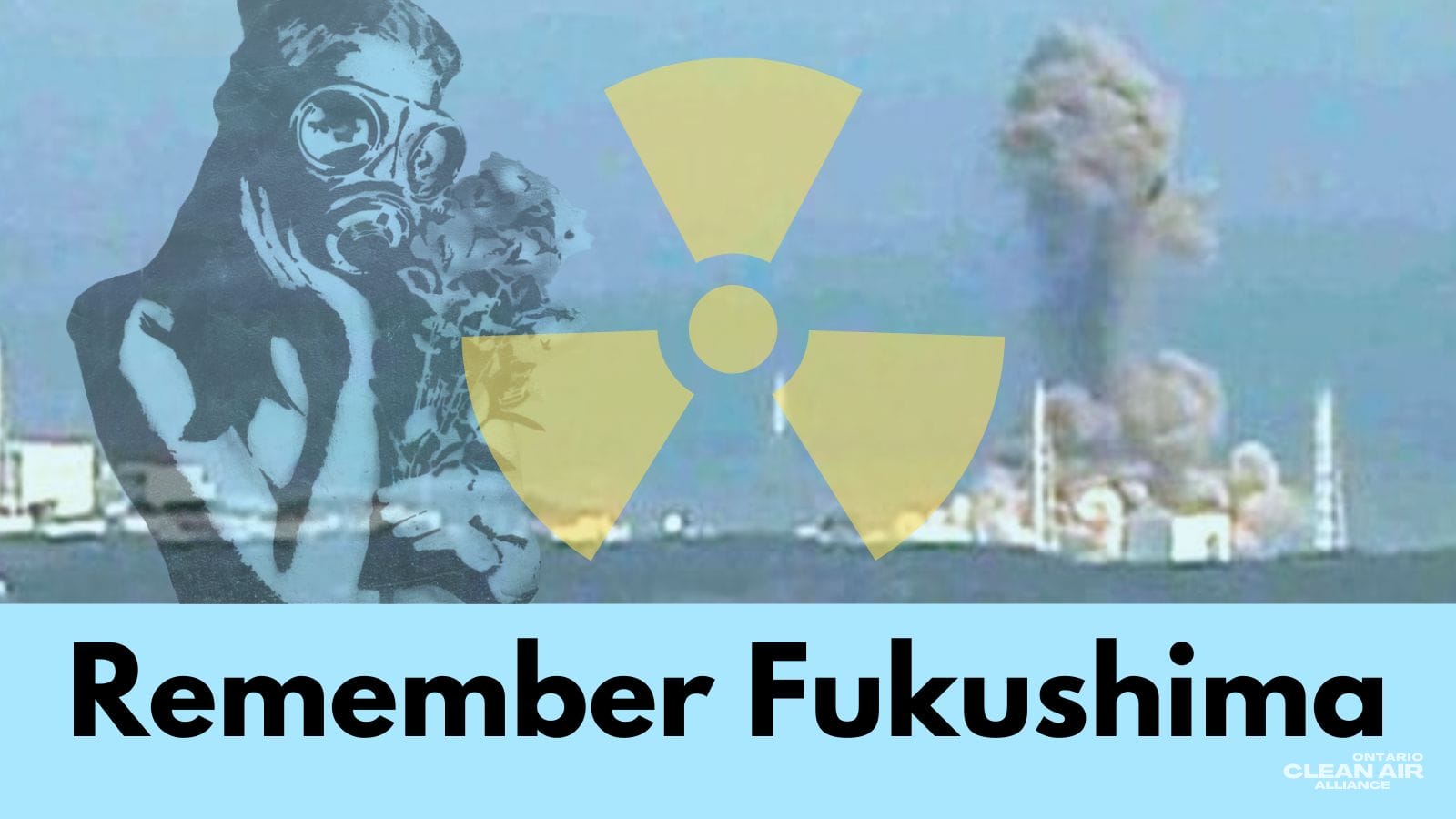
Ignoring that crack in your foundation won’t make it go away. Similarly, ignoring signs of trouble in Ontario’s CANDU reactors is not a strategy for ensuring these aging units are safe.
It’s not surprising, however, that a nuclear safety regulator, that often seems confused about whether it is an industry cheerleader or an impartial assessor of nuclear safety, is responding to clear signs of trouble by trying to explain them away.
The 12th anniversary of the Fukushima Nuclear disaster is an excellent moment for the Canadian Nuclear Safety Commission (CNSC) to take a long, hard look in the mirror. What it will see is an agency that excels at spinning out talking points about Canada’s “world class” nuclear industry along with hype about new unproven nuclear technologies. What it won’t see is an agency that rigorously demands answers to difficult questions like just what is happening with long-in-the-tooth pressure tube systems inside decades-old reactors.
Unfortunately, too many of our political leaders listen to the CNSC’s spin instead of examining the agency’s actions. They are oblivious to the fact that the CNSC has allowed its own requirements for assuring pressure tube integrity to be violated, and that its staff see their job as perpetuating the nuclear industry in Canada first and foremost rather than truly demanding the “world class” safety standards the agency pays lip service to in its communications.
Japan has important lessons to teach us about what happens when a regulatory system becomes co-opted into propping up an industry instead of examining its fundamental safety. Far from being the result of “once in a millennium” event, the conditions for the Fukushima disaster were sown by lax oversight and a far too cozy relationship between the nuclear industry and its supposed regulators, according to the country’s own legislative assessment. The post-accident examination carried out by the Diet (legislature) of Japan found that there was no separation between nuclear regulation and promotion in the country, with the result that the nuclear industry became “an unstoppable force, immune to scrutiny by civil society.”
It also found that: “Despite having a number of opportunities to take measures, regulatory agencies and TEPCO management deliberately postponed decisions, did not take action, or took decisions that were convenient for themselves.” There are some very worrying parallels between that statement and the refusal of the CNSC to demand real proof from Ontario Power Generation and Bruce Power that pressure tube systems are operating within safe limits.
What you can do
This is an excellent moment to remind the CNSC’s boss, Natural Resources Jonathan Wilkinson, that the CNSC’s job is not to promote nuclear interests but to demand answers on troubling signs of possible system failure and to take a precautionary approach in the face of serious signs of trouble.